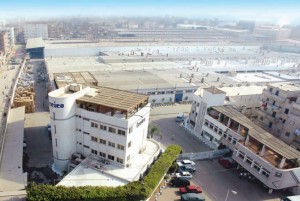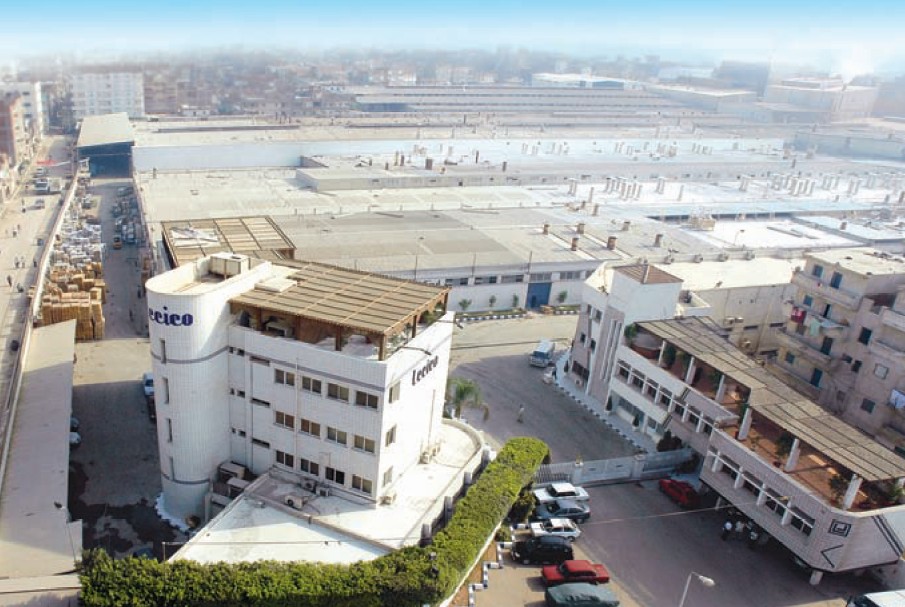
(DNE archive photo)
By Marwa Mafrah, Mustafa Fahmi, Nahal Munir
Recent protests and acts of violence in Cairo since the ouster of former president Mohamad Morsi have forced many factories, particularly those located in the cities of 10th of Ramadan and 15th of May, to bear extra costs for security; many have hired local Bedouin tribesmen to stand guard at facilities.
Abd al-Ghani al-Absiri, Chairman of the 15th of May Investors Organisation, stated that recent lapses in security have led many Bedouin to begin raising the costs of “royalties” paid to them by 50%.
He added that royalties had increased on average from EGP 1000 to EGP 1500 monthly since the outbreak of mass protests on 30 June.
He stated that factory owners are often forced to seek the aid of Bedouins, as opposed to private security firms, in order to provide security at industrial facilities as a means of appeasing the Bedouins and preventing them from seizing the factories.
He said that the country’s political and security situation would need to stabilise in order for factories to once again operate at full capacity, ensuring, however, that the events of 30 June and that which followed would “not have a large effect on the country’s economy, as these events are temporary and part of the country’s transition.”
Al-Absiri added, however, that factories located in 10th of Ramadan city have been subject to the highest increases in “royalties”, often totalling upwards of EGP 2000 per month, an amount which could jeopardise investment rates in the region.
Mahi Hafiz, Chairman of the Health Committee within the 10th of Ramadan Investors Organisation, stated that Bedouin tribesmen forcibly seizing factories and increasing monies paid out for security services, or “royalties”, is the biggest problem facing businessmen operating within the city today. He attributed such acts to political instability and repeated outbreaks of violence seen throughout Egypt.
He added that “royalties” charged by Bedouins can fluctuate from anywhere between EGP 500 to as high as EGP 20,000 per month, saying that such rates have significantly increased over the last several days. He estimated that the total amount of monies collected in royalties by Bedouins in 10th of Ramadan city on average totalled EGP 1.5m per month.
He stated that the city’s security council had asked government officials to grant the city 10 duty/customs free vehicles to help protect industrial facilities located throughout the area, however they have not yet heard or received any response.
He stated that transporting/exporting freight and goods to and from ports has been difficult over the past several weeks due to the high number of roads which have been blocked off, in addition to the high rates of theft occurring along such roads. This puts further burdens on factories, he said, adding that they have already been suffering from low production and export rates, caused partially by Egypt’s repeated credit downgrades and increased cost of production.
Abu al-Ala Abu al-Naga, member of the Board of Directors for the 10th of Ramadan Investors Organisation and Secretary General of the Investors Organisation, stated that acts of violence seen throughout the country have not had an effect on factory production rates and that factory owners did not require increased security at their facilities. He stated that recent political unrest seen throughout the country would not last long, as he was confident that the Egyptian people would seek to see themselves through this crisis as fast as possible.
He added that the country’s Sharqeya Governorate had agreed to create a provincial security council that would pay for and distribute 10 vehicles to be used to protect and secure the governorate’s industrial facilities, including those located in 10th of Ramadan city.
Muhammad Khamis Shaban, member of the Board of Directors for the 6th of October Investors Organisation, stated that security throughout the governorate was stable, and had not been affected by recent acts of violence taking place throughout Egypt. He did point out, however, that factories operating throughout the governorate had come over the last year to rely increasingly on private security contractors, due to the progressively worse quality of government security services provided to factory owners.
Translated from Al-Borsa




